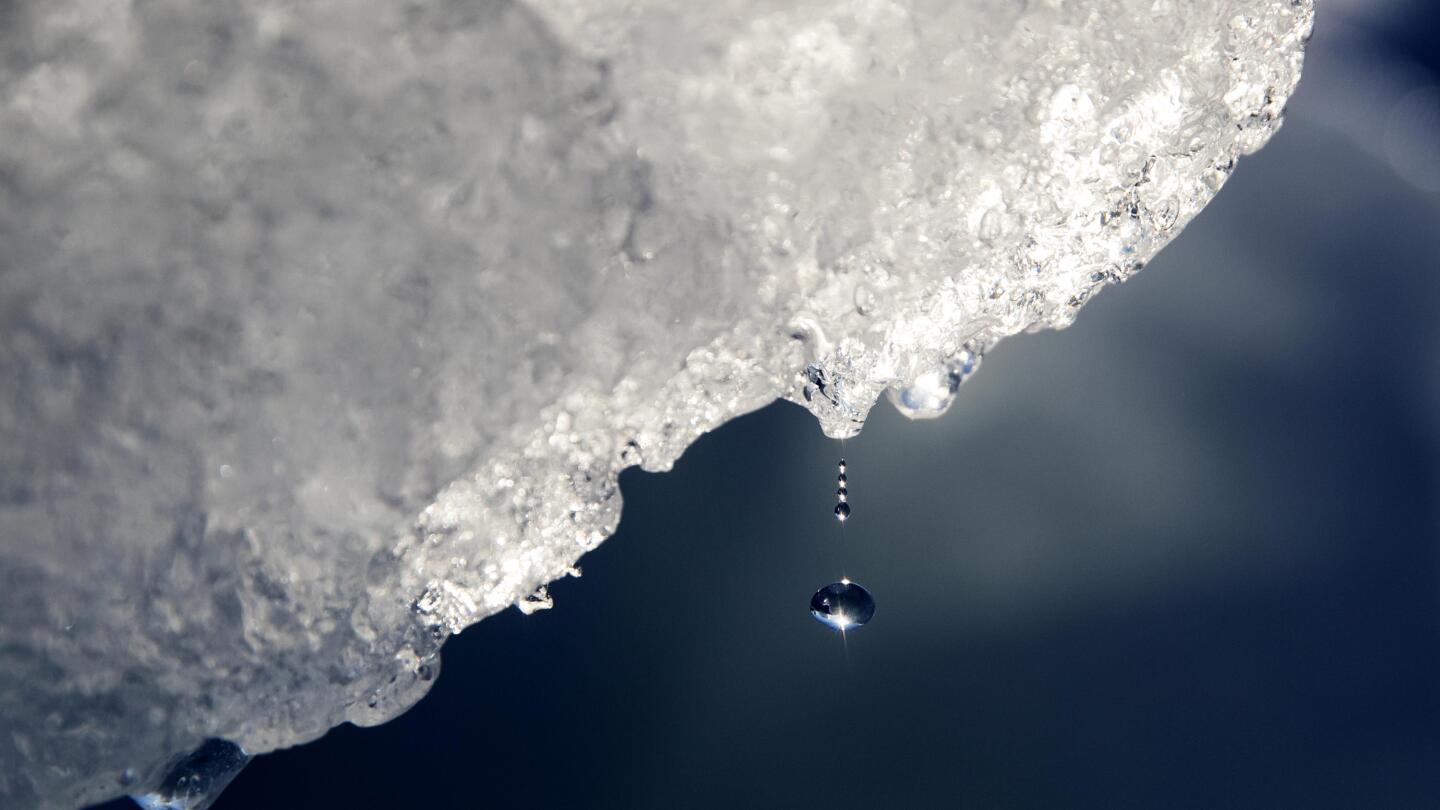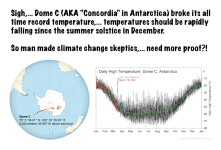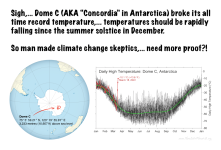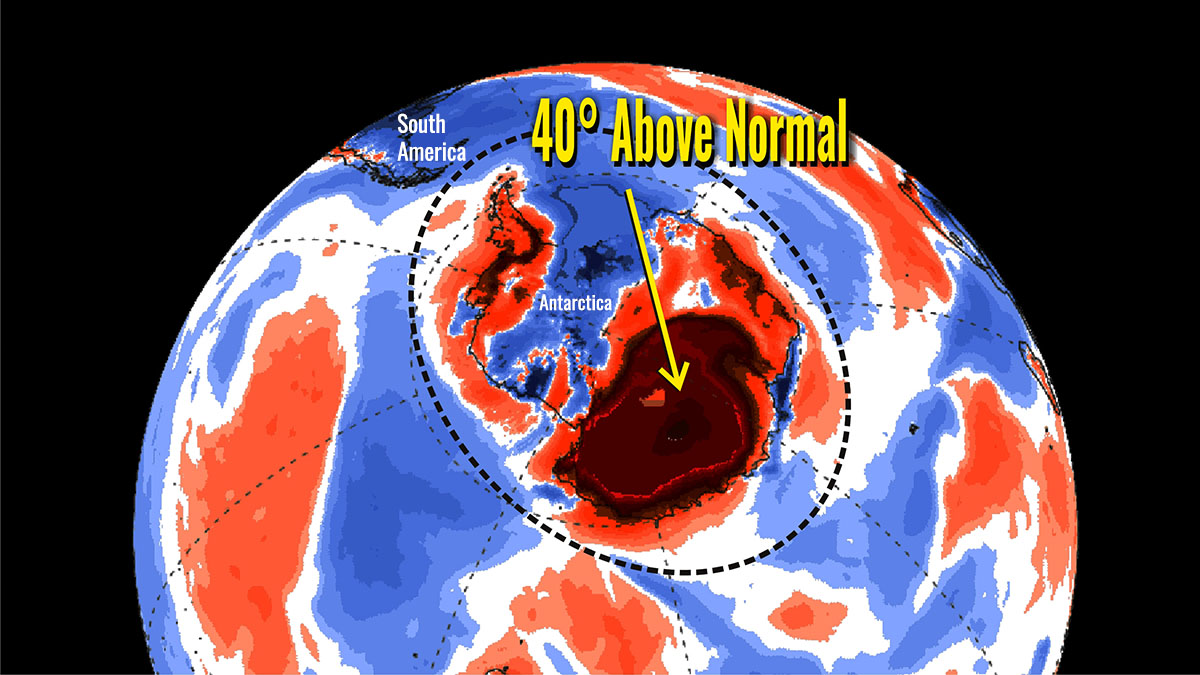- Joined
- Jan 22, 2017
- Messages
- 17,764
- Reaction score
- 28,184
- Location
- secret bunker
- Gender
- Female
- Political Leaning
- Libertarian - Left

Temperatures in eastern Antarctica are 70 degrees warmer than usual
Eastern Antarctica on Friday recorded temperatures that are 70 degrees higher than normal for this time of the year, The Washington Post reported. Temperatures in the eastern part of the conti…
Temperatures in the eastern part of the continent have soared 50 to 90 degrees above normal, raising concern from the scientific community.
A researcher studying polar meteorology at the Université Grenoble Alpes Dr. Jonathan Wille also tweeted that this heatwave was "never supposed to happen."
From another source:

'Not a good sign': The temperature was 70 degrees above average near South Pole, a troubling record
It was 70 degrees Fahrenheit warmer than average in Antarctica, while areas of the Arctic are more than 50 degrees Fahrenheit warmer than the average.
www.usatoday.com
Officials at the National Snow and Ice Data Center in Boulder, Colorado, have been watching the Arctic, which has been warming two to three times faster than the rest of the globe.
That same day temperatures hit 0 degrees at the even-higher Vostok station, beating the all-time record by about 27 degrees
Horrifying. I don't really know what else to say. It is worth pointing out that the arctic melting is a positive feedback loop;
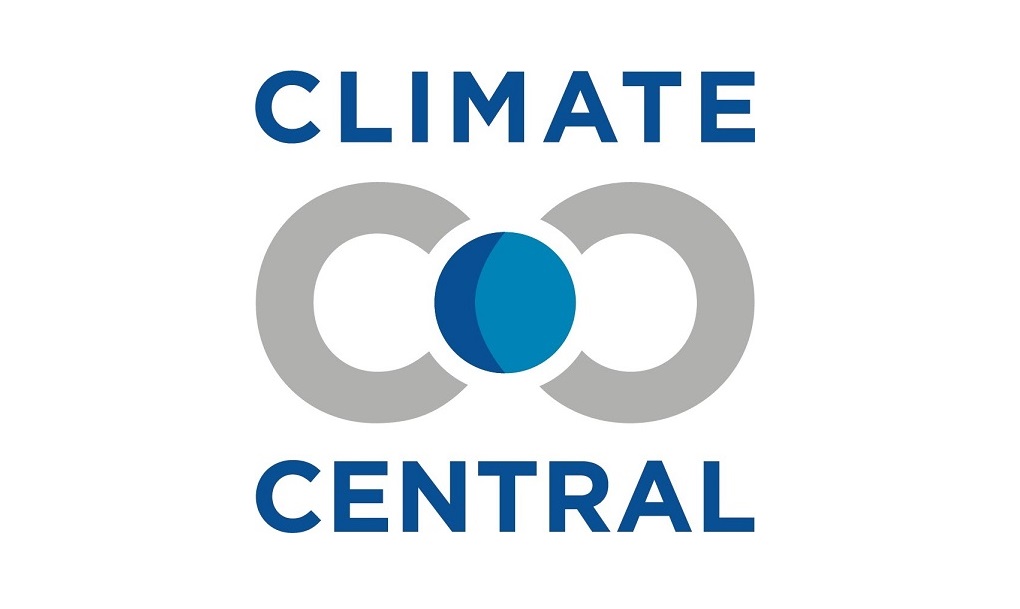
Melting Arctic Could Supercharge Climate Feedback Loop | Climate Central
Carbon dioxide could play a significant role in the climate impacts of thawing permafrost.
In the Arctic, where more than 1 trillion tons of carbon are locked within its frozen soil
Temperature alone could have a big effect on emissions, too. If temperatures warm by 18°F (10°C), carbon emissions from thawing permafrost could double, the study says.
So the warmer it gets the more carbon is released from the soil...which makes it warmer...which releases more carbon...
This unexpected heat wave could unexpectedly accelerate global warming in a way models didn't predict.

